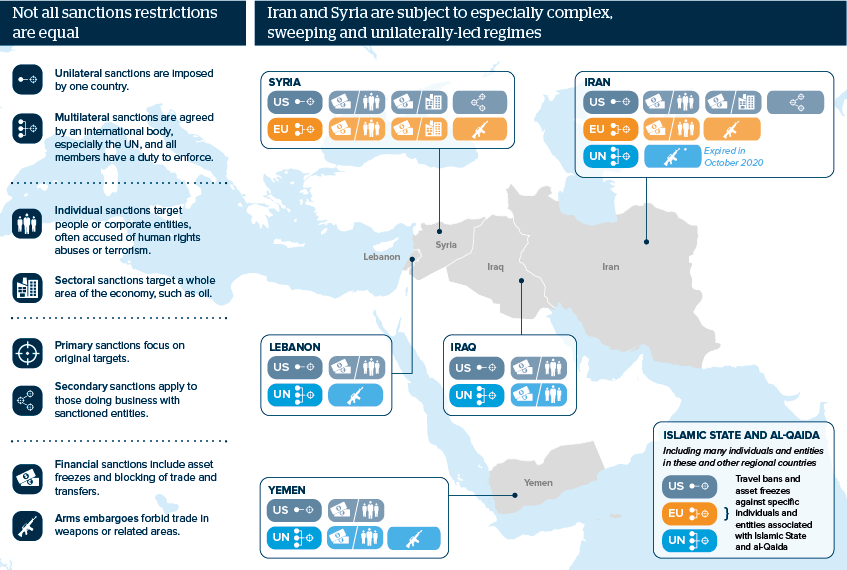Middle East sanctions will mostly misfire
Trump-Biden policy differences over Iran sanctions highlight a much wider controversy
Source: US Treasury, EU Commission, UN, Oxford Analytica
Outlook
An early stated item on the agenda of presumed next US president Joe Biden is to return to the 2015 Iran nuclear deal, which entails sanctions lifting. However, the complexity of the regime -- and secondary targets’ caution -- will make this a difficult task.
The United States and the EU will both have less impetus to remove sanctions on Syria that are nearly as sweeping, given human rights justifications and the lack of any route towards political transition.
Sanctions will therefore remain an important foreign policy tool in the region, despite their failure to weaken enemy governments and mounting evidence that humanitarian exemptions are ineffective.
Impacts
- Criticism of unilateral and sectoral sanctions on Tehran and Damascus may mount as their contribution to COVID-19’s impact is documented.
- Multilateral arms embargoes and blacklisting of individual terrorists will still be widely seen as legitimate and effective.
- Elites will find new ways to evade broad-brush sectoral measures and use them to create solidarity in suffering, against external enemies.
- External actors unwilling to use military force will use financial sanctions as symbolic politics, ignoring evidence on outcomes.
See also
- Western use of targeted sanctions is intensifying - Mar 30, 2021
- An Iran-US JCPOA return requires complex choreography - Feb 23, 2021
- Staged Iran-US nuclear deal return will be challenging - Feb 4, 2021
- US arms and nuclear pressure may force Iran reaction - Jul 24, 2020
- More graphic analysis
